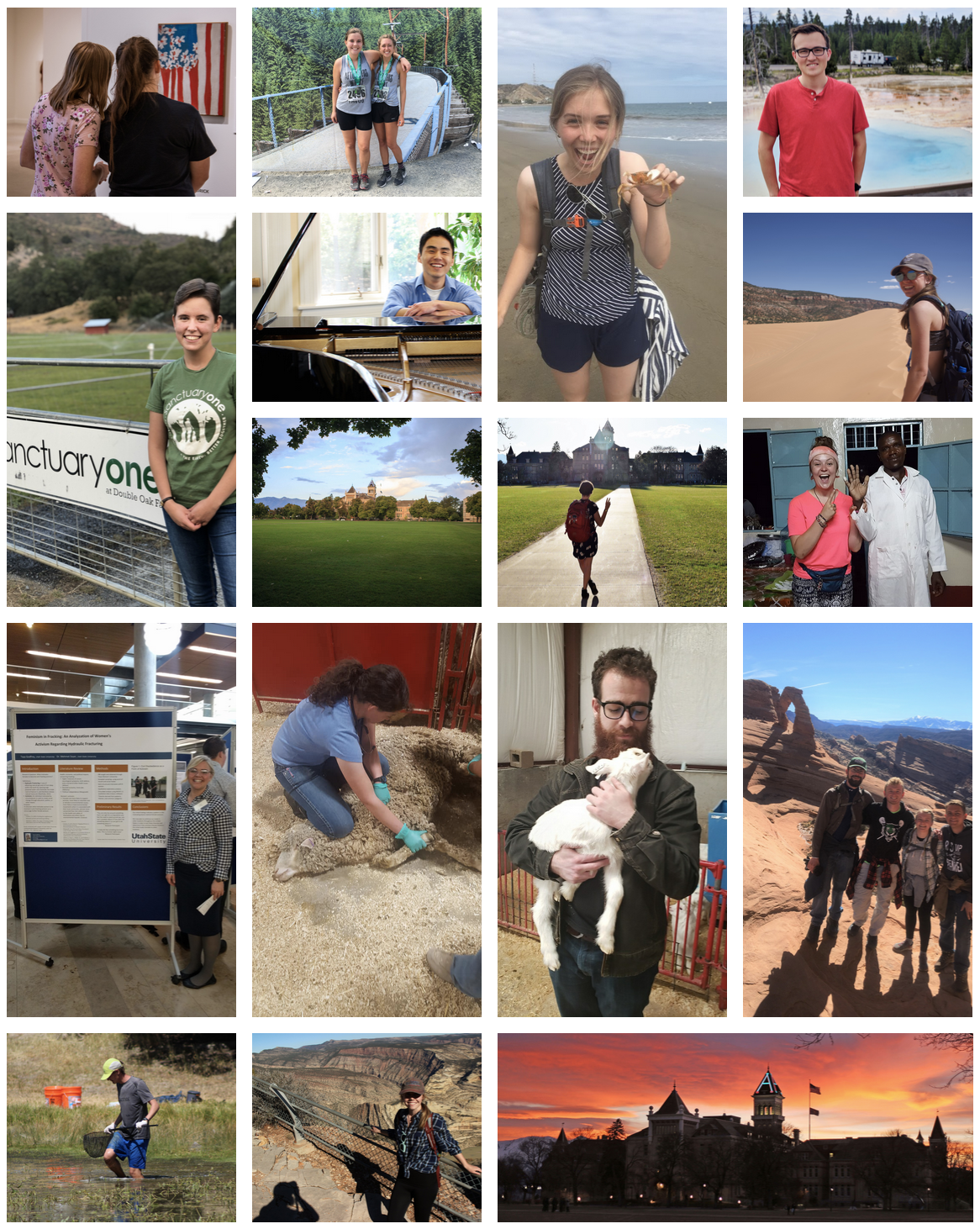Each Year as a URF
Freshman Year
 Fellows’ experiences will vary, depending on their choices of degree programs and where they are in the decision-making progress regarding degrees. Some fellows may still be exploring a variety of options and sampling a college’s offerings may be the best use of their time, while other fellows may be certain of their career path and ready to undertake a more immersive project with an individual faculty mentor in their department. Still other URFs may determine that their research interests lie in another department or college, and engage in interdisciplinary work instead. The fellowship allows for exploration of the more than 168 degree programs within the 42 departments of our eight colleges, and fellows are encouraged to find research projects throughout the university.
Fellows’ experiences will vary, depending on their choices of degree programs and where they are in the decision-making progress regarding degrees. Some fellows may still be exploring a variety of options and sampling a college’s offerings may be the best use of their time, while other fellows may be certain of their career path and ready to undertake a more immersive project with an individual faculty mentor in their department. Still other URFs may determine that their research interests lie in another department or college, and engage in interdisciplinary work instead. The fellowship allows for exploration of the more than 168 degree programs within the 42 departments of our eight colleges, and fellows are encouraged to find research projects throughout the university.
A few fellows in the first year will actually engage in a project so deeply that they are asked to present at a professional conference, typically with their faculty mentor. In recent years, a math URF went to Italy with his mentor, a computer science URF to Las Vegas, and a biology URF to New Orleans.
By the end of year one, each fellow should have found a mentor and project or projects to get involved with. At the end of each semester, fellows file a report with the director of the program summarizing their involvement in research, and should be able to indicate that they have been ‘vigorously involved’ in research, be it in learning about and selecting a mentor or in presenting at a conference.
Maintaining a GPA of 3.5 or higher is expected of our URFs. Fellows have reported that they could have avoided GPA problems if they had made different choices early on: not missing classes for family trips; asking for tutorial help early; not enrolling in classes at levels of 3000 and above before they were prepared; and putting their classwork as priority one.
Sophomore Year
For most fellows, the second year is a chance to get more directly involved in their research. Many fellows are working on their faculty mentor’s project, sometimes within a team of upper-division undergraduates, graduate students, or post-doctoral researchers. This is a great time to start to consider how their new research skills and knowledge could develop into an independent project.
This is also a time of change as fellows are exposed to a variety of disciplines that they may not have considered. It is very common for URFs to change their degree paths as their academic and research interests develop during their second and third years.
The second year may also open up new opportunities for scholarships, study abroad courses, humanitarian trips, and internships. The URF program encourages students to develop a degree plan that allows them to curate their education with as many of these experiences as they like; fellows that take a semester or more away from the USU campus can work with the program director to determine if they will maintain their fellowship or defer it for a future semester.
Students in their second year have their first chance to apply for the prestigious Barry M. Goldwater Scholarship, which is designated for students in science, math, technology, and engineering and offers $7,500 per year. The Udall Scholarship is yet another possibility, and it is set aside for students who have interest in the environment. In the second year of Honors, students enroll in English 2010 (honors version), which features an introduction to ethics of research. A scholarship prep class (Honors 3900), a 1-credit course, helps students prepare applications for the Goldwater and other competitions.
Junior and Senior Year
In general, the upper division years should see the fellow solidly engaged in research, scholarship, or creative activity, leading to a product appropriate to the field of study. This also involves dissemination of the project, which can be at a number of venues: USU Student Research Symposium, Research on Capitol Hill, the National Conference on Undergraduate Research, Posters on the Hill in Washington, DC, an arts exhibition or performance. In some disciplines, undergraduates may also publish their work in peer-reviewed journals as a primary or contributing author.
The third year is typically when most students foray out into the world through internships, study abroad opportunities, research fieldwork, or other research experiences. Having a solid research, scholarly, or artistic track record positions students well for prestigious awards such as the Rhodes or Marshall Scholarships that fund graduate education at Oxford or another United Kingdom institution. NSF Graduate Research Fellowship applications should be put together during this time as well. Several USU students have received these awards, including URF alumni.
Now is the time to investigate career options, graduate and professional schools. Fellows should begin to consider letters of reference, a revised resume or CV, and publications if appropriate. Finding the right “fit” for post-graduate plans can take time, and many opportunities will have deadlines early, so this is something to start thinking about before your final year!

